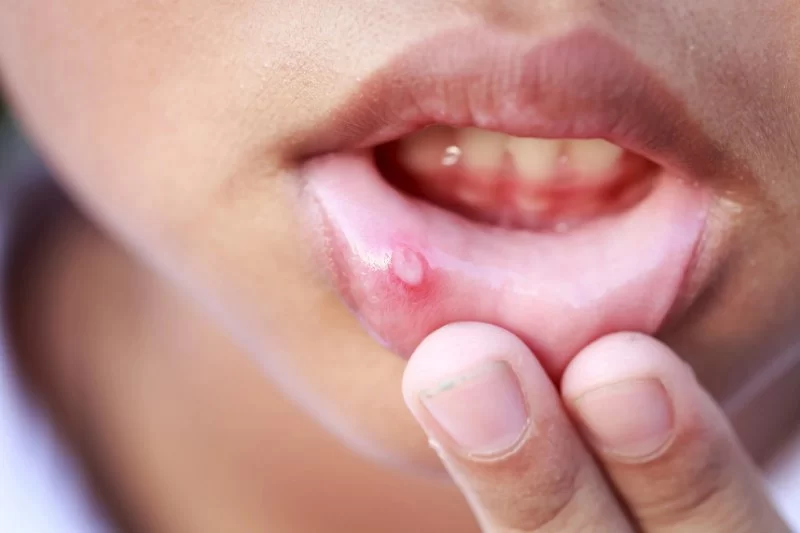
- 1 - Understanding Oral Ulcers
- 2 - Common Causes of Oral Ulcers
- 3 - Home Remedies for Oral Ulcers
- 4 - Professional Treatments for Oral Ulcers
- 5 - Real-Life Experiences with Oral Ulcers
- 6 - Prevention and Long-Term Care
Understanding Oral Ulcers
Oral ulcers, often referred to as canker sores or mouth sores, are painful lesions that develop inside the mouth. They may appear on the tongue, inner cheeks, gums, or lips. While most oral ulcers heal on their own within one to two weeks, the discomfort they cause can interfere with speaking, eating, and even daily routines. Learning how to treat oral ulcers effectively helps reduce pain, speed up healing, and prevent recurring issues.
Common Causes of Oral Ulcers
Several factors can trigger oral ulcers. Stress, minor injuries from biting the inside of the cheek, or irritation from braces often play a role. Nutritional deficiencies, such as low levels of iron, folic acid, or vitamin B12, may also contribute. Some people experience ulcers as a side effect of certain medications, while others notice flare-ups due to spicy or acidic foods. In rare cases, frequent ulcers may signal underlying health conditions, making it important to seek medical evaluation if they occur persistently.
Home Remedies for Oral Ulcers
Simple home remedies can provide relief and promote healing. Rinsing with warm salt water reduces inflammation and prevents infection. Applying honey, known for its antibacterial properties, can soothe the sore and accelerate healing. Some individuals find relief by avoiding acidic drinks like orange juice and opting for bland, soft foods. Over-the-counter gels or numbing mouthwashes can also provide temporary comfort. Practicing good oral hygiene is essential, and patients can find tailored product recommendations at Family Dentistry Online to keep their mouths healthy while managing ulcers.
Professional Treatments for Oral Ulcers
When ulcers are severe, long-lasting, or frequently recurring, professional dental care is necessary. Dentists may prescribe medicated mouth rinses, topical ointments, or corticosteroid treatments to reduce pain and swelling. In cases where ulcers are linked to nutritional deficiencies, supplements may be recommended. For patients with underlying medical conditions, treating the root cause often reduces the occurrence of ulcers. Regular dental checkups ensure that ulcers are properly monitored and do not indicate more serious concerns such as infections or early signs of oral disease.
Real-Life Experiences with Oral Ulcers
Maria, a college student in New York, struggled with frequent oral ulcers during stressful exam seasons. Initially, she ignored them, thinking they were minor. However, the pain grew unbearable, affecting her ability to eat. After consulting a dentist, she learned that her diet lacked vitamin B12. With supplements and improved oral care, her ulcers decreased significantly. On the other hand, Tom, a business professional in Chicago, found success by using medicated mouth rinses and stress management techniques. Their stories highlight how identifying causes and applying the right treatments make a difference in healing oral ulcers effectively.
Prevention and Long-Term Care
Preventing oral ulcers often starts with lifestyle adjustments. Eating a balanced diet rich in vitamins, reducing stress, and maintaining excellent oral hygiene are key. Avoiding foods that trigger ulcers, such as spicy or acidic meals, can minimize flare-ups. For individuals with braces or dental appliances, using orthodontic wax helps reduce friction that leads to ulcers. Consistency in dental care also ensures healthier gums and teeth, lowering the chances of recurring sores. Patients looking for reliable oral care solutions can explore personalized recommendations through Family Dentistry Online to support their long-term oral health goals.







 Coast Dental4.0 (514 review)
Coast Dental4.0 (514 review) Ryan L. Lindner, DDS0.0 (0 review)
Ryan L. Lindner, DDS0.0 (0 review) Park Family and Cosmetic Dentistry5.0 (51 review)
Park Family and Cosmetic Dentistry5.0 (51 review) Pediatric Dentistry of Cape Coral4.0 (178 review)
Pediatric Dentistry of Cape Coral4.0 (178 review) Sylmar Dental & Braces5.0 (111 review)
Sylmar Dental & Braces5.0 (111 review) Mohn Family Dental4.0 (43 review)
Mohn Family Dental4.0 (43 review) The Importance of Oral Health Education During Pregnancy for a Healthy Pregnancy
The Importance of Oral Health Education During Pregnancy for a Healthy Pregnancy Best Tips for Brushing Your Teeth Properly for Healthy Gums: Essential Techniques for Oral Health
Best Tips for Brushing Your Teeth Properly for Healthy Gums: Essential Techniques for Oral Health Why Skipping Dental Checkups Can Lead to Bigger Oral Health Problems
Why Skipping Dental Checkups Can Lead to Bigger Oral Health Problems Advantages of Porcelain Dental Restorations
Advantages of Porcelain Dental Restorations How Can Diabetes Cause Tooth and Gum Problems? Preventing and Managing Oral Health Issues
How Can Diabetes Cause Tooth and Gum Problems? Preventing and Managing Oral Health Issues Healthy Habits for Promoting Good Oral Health and Hygiene: Tips for a Healthy Smile
Healthy Habits for Promoting Good Oral Health and Hygiene: Tips for a Healthy Smile